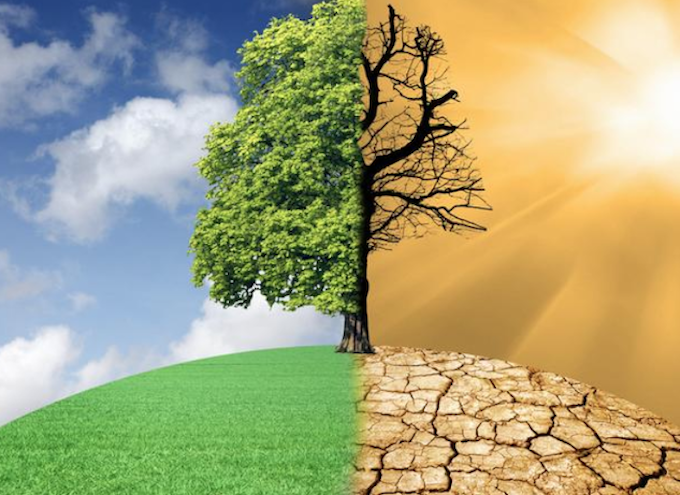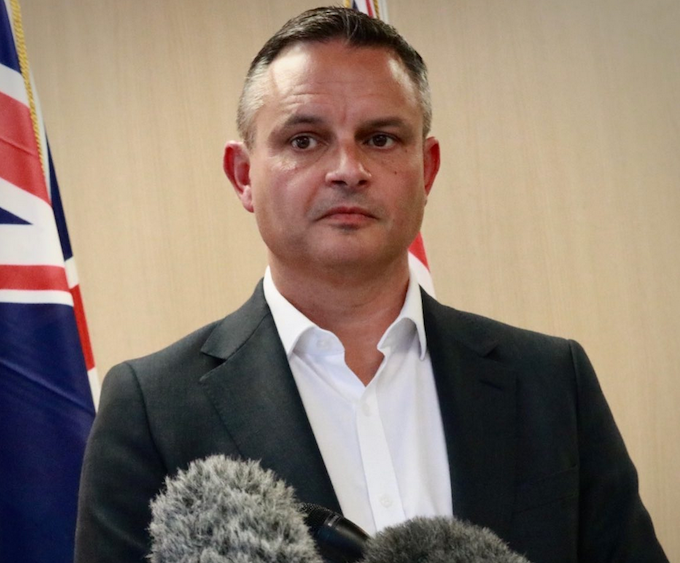
Deeper and and more rapid cuts in greenhouse gas emissions are needed to limit the worst effects of global warming, a climate scientist has warned.
The UN’s Intergovernmental Panel on Climate Change (IPCC) said in a report that global emissions of CO2 would need to peak within three years to stave off the worst impacts.
Without shrinking energy demand, reducing emissions rapidly by the end of this decade to keep warming below 1.5C will be almost impossible, the key UN body’s report said.
- LISTEN TO RNZ MORNING REPORT: ‘If we don’t achieve deep and rapid reductions during this decade… then limiting warming to 1.5 degrees is out of reach’ – IPCC vice chair Dr Andy Reisinger
- ‘We are one of the highest emitting countries in the world – James Shaw
- ‘It’s a huge challenge and we’ve got to do it so quickly’ – Professor Ralph Sims
- ‘The window is almost closed … we need to take action immediately’- Professor James Renwick
- READ MORE: Climate change: IPCC scientists say it’s ‘now or never’ to limit warming
Even if all the policies to cut carbon that governments had put in place by the end of 2020 were fully implemented, the world will still warm by 3.2C this century.
At this point, only severe emissions cuts in this decade across all sectors, from agriculture and transport to energy and buildings, can turn things around, the report said.
IPCC vice-chair Dr Andy Reisinger told RNZ Morning Report the world was “pretty much out of time” to limit warming to 1.5C as agreed in Paris in 2015 and subsequently.
“What our report shows is that the emissions over the last decade were at the highest level ever in human history.
“But on the positive side, that level of emissions growth has slowed and globally we’ve seen a revolution in prices for some renewable energy technologies.” That had led to a rapid uptake of solar and wind energy technologies, he said.
“Also policies have grown. About half of global greenhouse gas emissions that we looked at in our report are now covered by some sort of laws that address climate change.”
The report said the world would need “carbon dioxide removal” (CDR) technologies – ranging from planting trees that soak up carbon to grow, to costly and energy-intensive technologies to suck carbon dioxide directly from the air.
Governments had historically seen these technologies as a “cop out” but they were needed alongside reducing emissions,” Reisinger said.
“The time has now run out. If we don’t achieve deep and rapid reductions during this decade, much more so than we’re currently planning to collectively, then limiting warming to 1.5 degrees is out of reach.
“And the world collectively has the tools to reduce emissions by about a half by 2030.”

NZ has ‘squandered 30 years’, says Shaw
Climate Change Minister James Shaw says Aotearoa New Zealand has the political will to tackle climate change but it would have been a lot easier if it had begun decades ago.
“We are one of the highest emitting countries in the world on a per-capita basis and what that means is we’re now in a situation where having essentially fluffed around for three decades the cuts that we need to make over are now far steeper than they would have been.”
“Our country has squandered the past 30 years,” Shaw told Morning Report.
He said the Emissions Reduction Plan to be published next month would set out how the country would reduce emissions across every sector of the economy.
“I think what’s different about the plan that we’re putting out in May is that it’s a statutory instrument”, he said, and was required under the Zero Carbon Act. It would have targets to reduce emissions to the year 2025, 2030 and 2035.
Shaw said measures like the clean car discount scheme were working.
New Zealand’s agricultural emissions had not reduced, he said. This was the year when final decisions would be made on whether agriculture was brought into the Emissions Trading Scheme, and the whole sector was involved in the process.
There were farms up and down the country doing a terrific job on emissions but like every sector there was a “noisy group” which was dragging the chain.
“I think the charge that Groundswell are laying that we are not listening to farmers is ‘total bollocks’, he said.
Shaw noted the IPCC report said 83 percent of net growth in greenhouse gases since 2010 had occurred in Asia and the Pacific — and that New Zealand, Australia and Japan, as a group, had some of the highest rates of greenhouse gas emissions per capita in 2019.
Cut consumer demand
While past IPCC reports on mitigating carbon emissions tended to focus on the promise of sustainable fuel alternatives, the new report highlights a need to cut consumer demand.
Massey University emeritus professor Ralph Sims, a review editor of the IPCC report, said one of the overarching messages is that people needed to change behaviours.
Despite New Zealanders having an attitude that our impact was small, in fact the country had some of the highest carbon emissions per capita, he said.
“We need people to look at their lifestyles, look at their carbon footprints and consider how they may reduce them.”
One of the easiest for the individual was to avoid food waste, he said.
Sims was involved in the transport chapter and said it was a key area for New Zealand.
“It’s the highest growing sector, and makes up for 20 percent of the country’s emissions.”
Faster electric vehicles change
He did not believe the country was transitioning fast enough to electric vehicles, and government assistance needed to be ramped up.
Electric vehicle prices would also reduce over time and a second hand market would make them more affordable, he said.
Sims said New Zealand needed to “get out of coal” and some companies were already reducing their coal demand.
Though New Zealand’s coal industry was small, exploration was still on the table and just last year the Southland District Council granted exploration at Ohai, he said.
Methane emissions need to reduce by a third by 2030, which Sims said is “a major challenge, and highly unlikely” to be achieved in New Zealand.
Victoria University of Wellington professor of physical geography James Renwick said curbing greenhouse gas emissions was still possible, with immediate action.
“The advice from the Climate Change Commission does show that we can peak emissions in the next few years and reduce and get down to zero carbon dioxide hopefully well in advance of 2050,” he said.
“It’s impossible to overstate the dangerous threat we face from climate change and yet politicians and policy makers and businesses still don’t act when everything’s at stake. I haven’t really seen the political will yet but we really need to see action.”
Technologies available at present to remove carbon dioxide from the atmosphere were not able to operate at the scale needed to make a difference to the climate system, he said.
This article is republished under a community partnership agreement with RNZ.












































